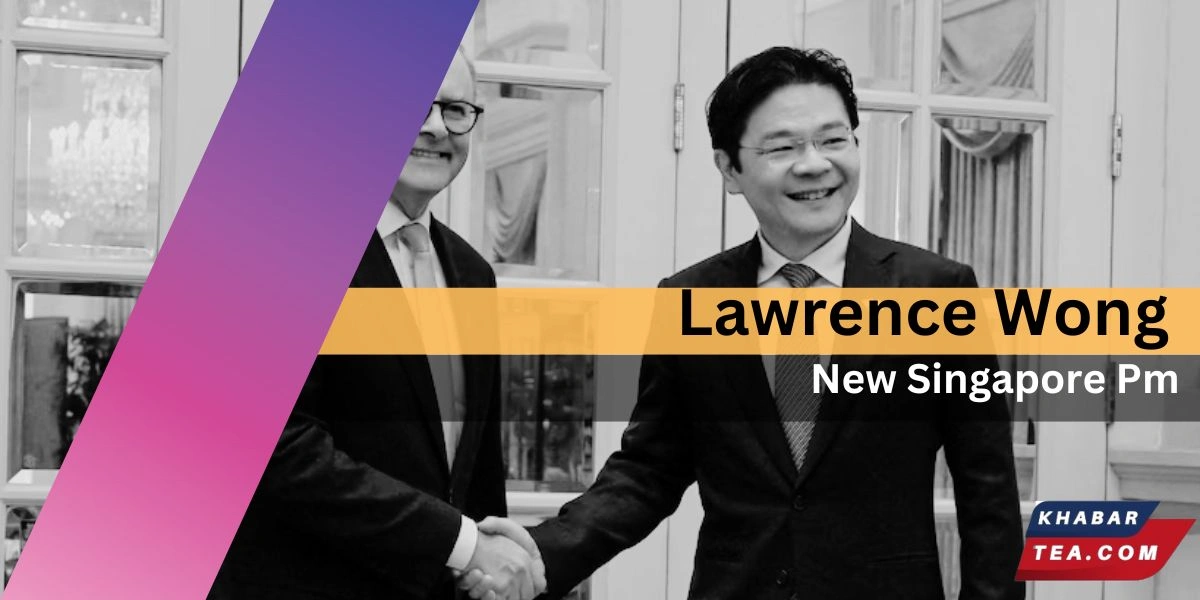
Singapore, a dynamic island nation nestled in Southeast Asia, stands at the crossroads of change. Recently, the nation witnessed a significant political transition—a passing of the torch from one leader to another.
As Prime Minister Lee Hsien steps down after two decades of service, Lawrence, a seasoned economist and former deputy prime minister, assumes the mantle of leadership. In this article, we delve into the intricacies of this transition, examining the legacies of both leaders and the path forward for Singapore.
Read More: PM Narendra Modi का Powerful 2024 रैली सफर: उधमपुर, बाड़मेर, और दौसा को एकजुट करना
Table of Contents
Lee Hsien Loong: A Stalwart Leader
Lee Hsien, son of Sincapore’s revered founding father, Lee Kuan Yew, has been a steady hand at the helm for 20 years. His tenure has been marked by remarkable achievements and strategic decisions:
First day in my new role. Held my first Cabinet meeting this afternoon.
— Lawrence Wong (@LawrenceWongST) May 16, 2024
We have a full agenda ahead. Look forward to working with all of you to take Singapore forward in our next phase. pic.twitter.com/diTY45l4jD
Economic Transformation:
Under Lee’s watch, Sincapore’s economy diversified and flourished. The island transformed into an international financial hub, attracting investors, businesses, and tourists alike.
His policies encouraged innovation, technological advancement, and sustainable growth, positioning Sincapore as a global player.
Resilience in Crisis:
Lee’s government adeptly navigated several global crises, including the 2008 financial meltdown and the recent COVID-19 pandemic.
Swift policy responses, robust healthcare infrastructure, and effective communication helped Singapore weather these storms.
Balancing Act on the World Stage:
Sincapore’s strategic location places it at the intersection of major powers. Lee deftly balanced relationships with both the United States and China.
His diplomacy ensured stability in a geopolitically sensitive region, fostering economic cooperation and cultural exchange.
Social Reforms:
Lee’s administration repealed a controversial anti-gay sex law, signaling progress in social rights. However, restrictions on freedom of speech remain a point of contention.
Lee Hsien Loong leaves behind a legacy of economic prosperity, stability, and strategic foresight. His departure marks the end of an era, but his impact reverberates through Sincapore’s institutions.
Lawrence Wong: The New Face of Leadership
As Lawrence Wong steps into the role of Sincapore’s fourth prime minister, the nation anticipates continuity and fresh perspectives:
This is my promise to all Singaporeans: I will serve you with all my heart, and always strive to make tomorrow better than today.
— Lawrence Wong (@LawrenceWongST) May 15, 2024
My mission is clear: to continue defying the odds and to sustain this miracle called Singapore! pic.twitter.com/xhihzBVd8z
Who is Lawrence Wong?
Wong, born in 1972, is a prominent Singaporean politician and economist. Let’s delve into his background:
Education and Early Career:
Wong holds a Bachelor of Social Sciences (Honors) in Economics from the National University of Singapore (NUS). His academic foundation in economics has been instrumental in shaping his policy perspective.
Prior to entering politics, he worked in the private sector, gaining valuable experience in finance and business.
Political Journey:
Wong’s political career began when he joined the ruling People’s Action Party (PAP). His dedication and competence quickly propelled him through the ranks.
He served as the Minister of National Development, overseeing urban planning, housing, and infrastructure development. His focus on sustainable urbanization and green spaces garnered attention.
As Deputy Prime Minister, Wong played a crucial role in policy formulation, economic strategy, and crisis management.

Leadership Style and Vision:
Wong is known for his pragmatic approach. He emphasizes data-driven decision-making and evidence-based policies.
His vision centers on economic resilience, innovation, and social inclusivity. He recognizes the need to adapt to global shifts while maintaining Sincapore’s unique identity.
Transition to Prime Minister:
With Lee Hsien stepping down, Wong assumes the role of Sincapore’s fourth prime minister. His leadership will shape the nation’s trajectory in a rapidly changing world.
Transition and Expectations:
Wong, a 51-year-old US-trained economist, inherits a well-defined roadmap laid out in the “Forward Singapore” report.
His leadership style combines pragmatism with adaptability, emphasizing progress while acknowledging the evolving global landscape.
Economic Expertise:
Wong’s background in economics positions him well to address ‘Sincapore’s economic challenges.
His focus on innovation, sustainable development, and digital transformation aligns with the nation’s aspirations.
Breaking the Dynasty:
Wong’s ascent marks a departure from the Lee family dynasty. For the first time, Singaporeans witnessed a non-family leader at the helm.
This shift signals an evolution in Singaporean politics, emphasizing meritocracy and institutional strength.
Challenges Ahead:
Wong faces multifaceted challenges:
- Economic Growth: Sustaining growth while adapting to global shifts.
- Regional Dynamics: Navigating complex relations with neighboring countries.
- Social Issues: Balancing economic progress with social welfare.
Conclusion
Sincapore’s political landscape is in flux, but continuity remains paramount. As Wong assumes leadership, Singaporeans look to the future with optimism. Stability, innovation, and a commitment to their beloved city-state define their expectations. The legacy of Lee Hsien Loong serves as a foundation, and Lawrence Wong’s vision will shape the next chapter of Singapore’s remarkable journey.
Disclaimer: Please note that this article synthesizes publicly available information, and any opinions expressed are solely those of the author. For in-depth analysis, consult reputable sources .
I hope you find this extended article engaging and informative! If you have any further requests or need additional details, feel free to ask.
FAQs
Who is Wong, and how did he become Singapore’s next Prime Minister?
Wong is a US-trained economist who oversaw Sincapore’s fight against the COVID-19 pandemic. He is also a skilled blues guitarist. Wong was chosen as the leader of the ruling People’s Action Party’s (PAP) fourth-generation team, paving the way for him to become the next prime minister.
How long has Lee Hsien been in power, and why is he stepping down?
Lee Hsien has led Sincapore for 20 years. His decision to step down marks the end of a political era for the island nation. He will formally hand over the reins to Wong, signaling an evolution in Singapore’s political leadership.
What legacy does Lee Hsien leave behind?
Under Lee’s leadership, Sincapore’s economy diversified and grew, transforming it into an international financial powerhouse and top tourist destination. Its GDP per capita doubled in the past 20 years. Lee’s government competently steered the country through recessions, the global financial crisis, and the Covid pandemic. He also balanced Sincapore’s relationships with the US and China in geopolitics.
How will Wong lead differently from Lee Hsien?
Wong, as the new prime minister, will have to be “his own man.” While he follows in Lee’s footsteps, he will likely bring his own approach to governance and leadership.
What does this transition mean for Singapore’s political landscape?
The transition signals a move away from the shadow of the Lee family, even though Lee Hsien will remain in the cabinet as a senior minister. Singaporeans will watch how Wong continues to shape the nation’s future










